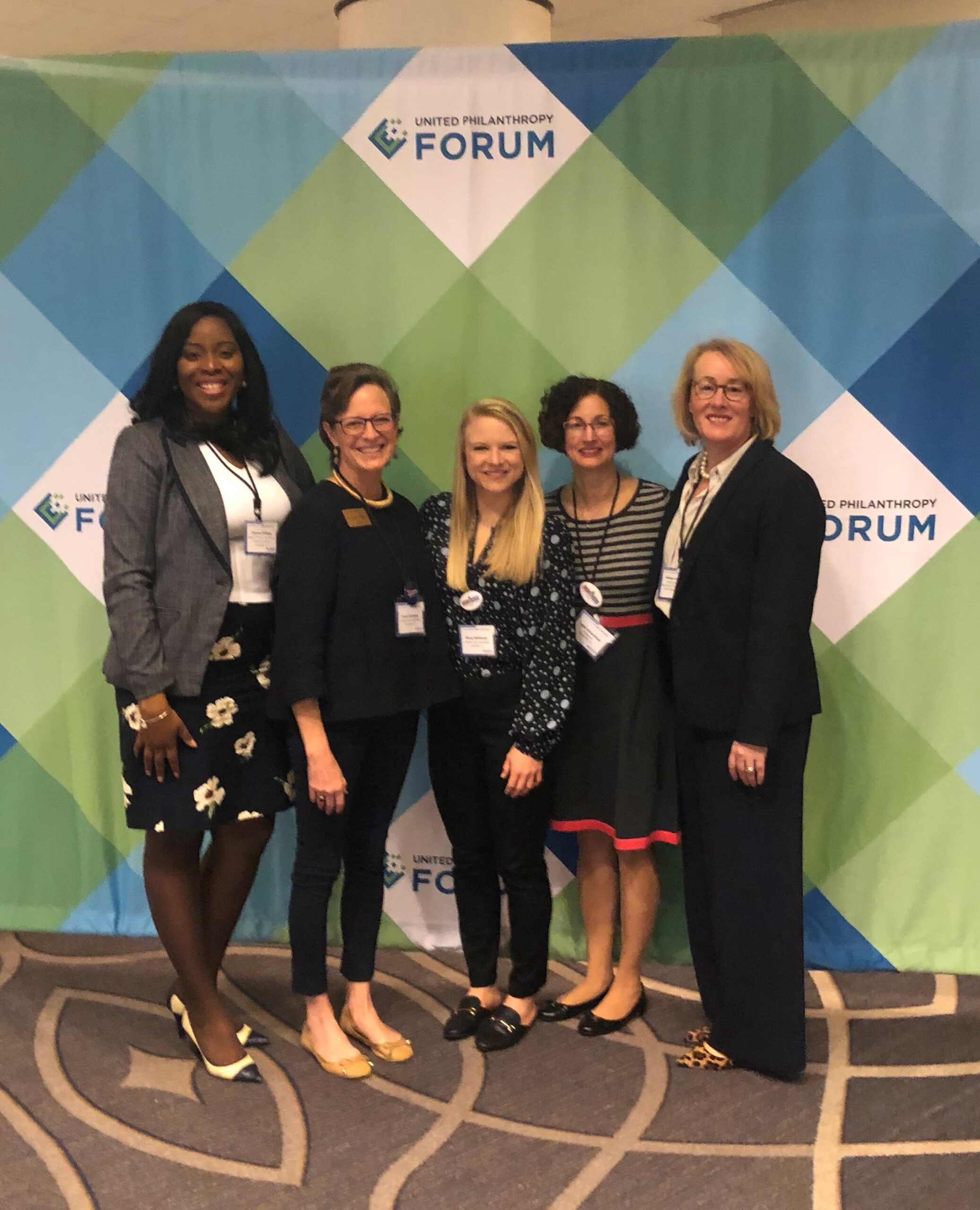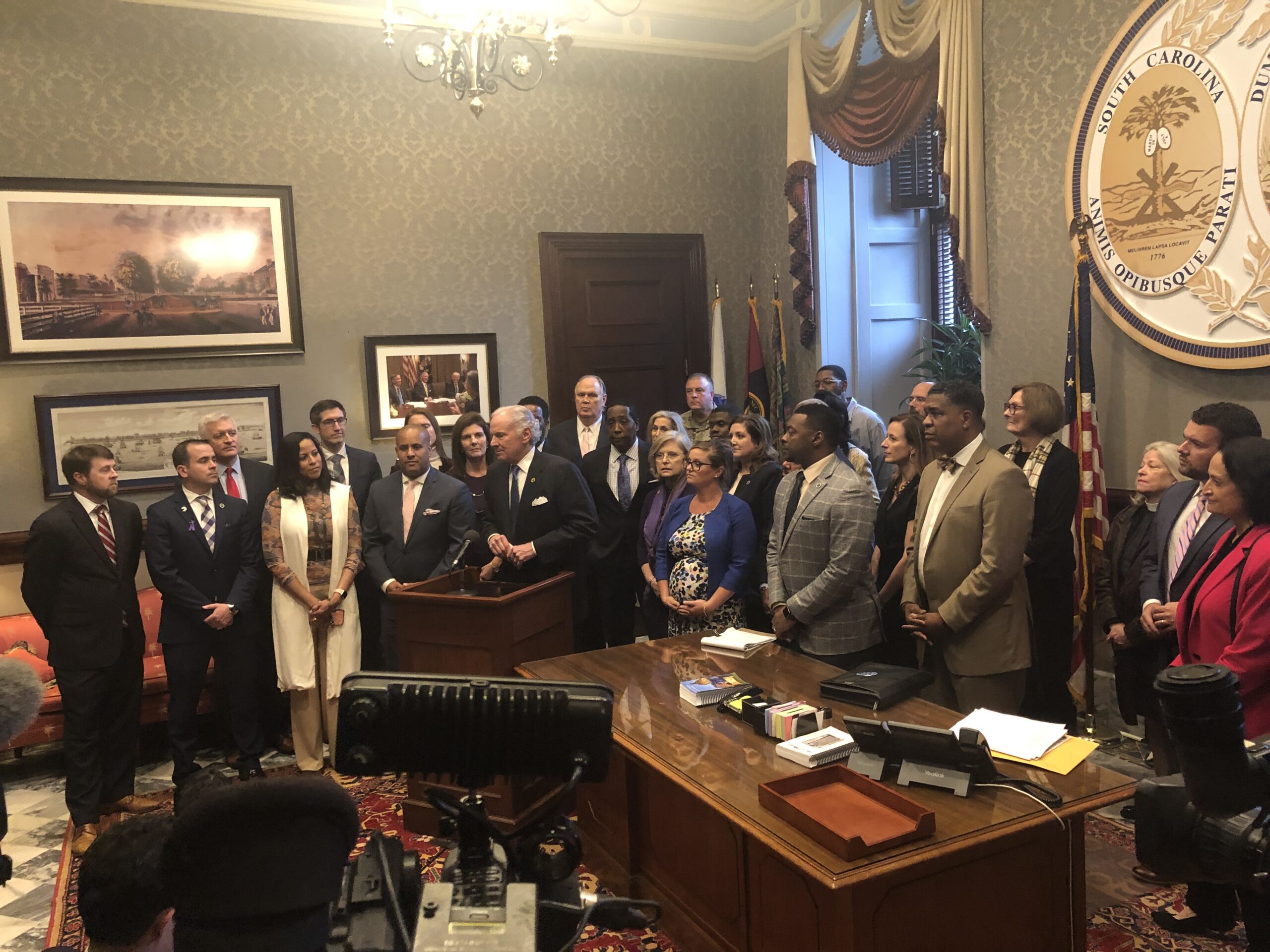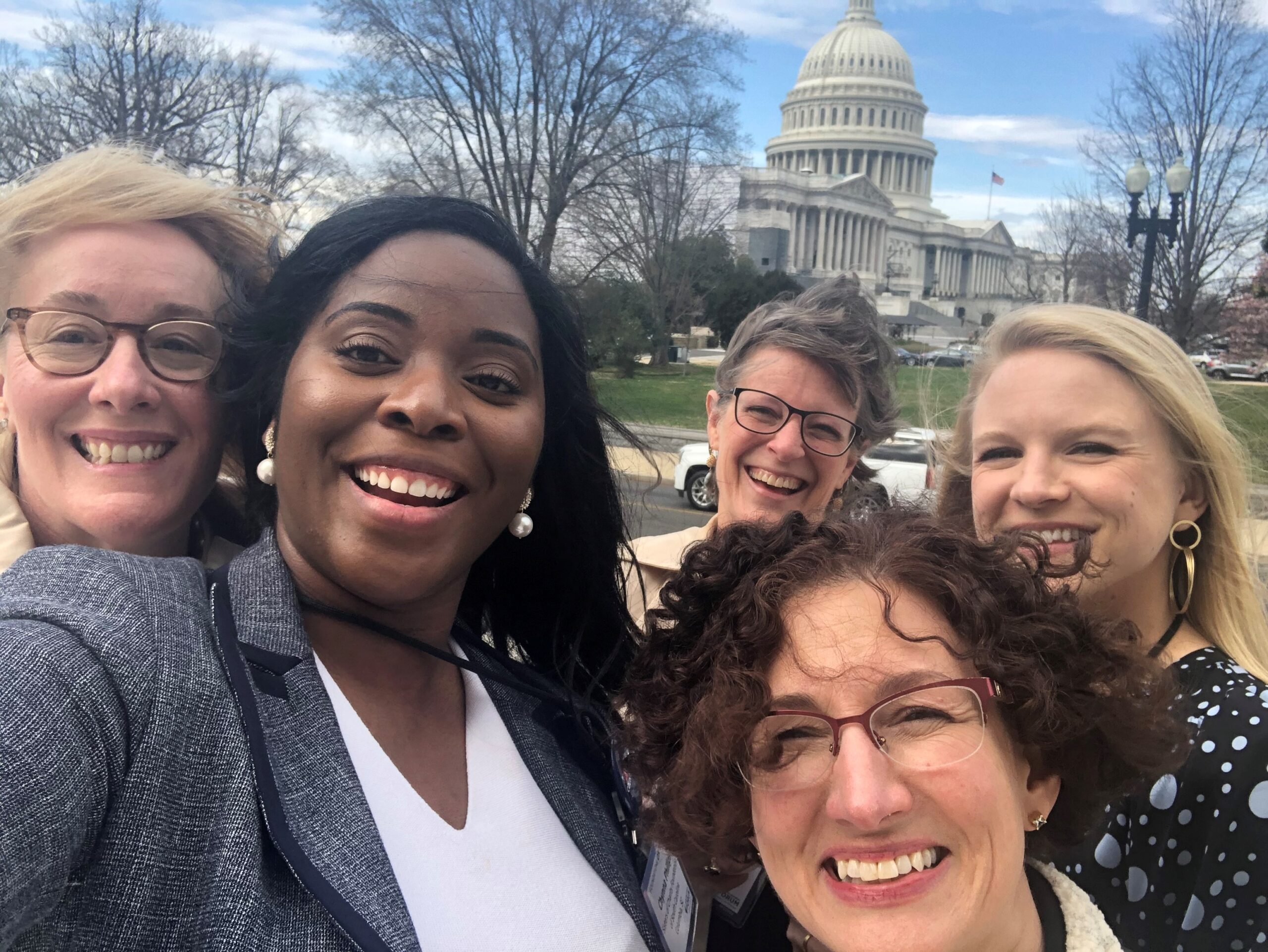Chartering a New Course into the World of Advocacy
By Chynna A. Phillips, Senior Director of Research and Advocacy
Attend any philanthropic poverty-related forum and you are bound to hear some iteration of “you cannot fund your way out of poverty” at least once by a speaker or fellow attendee. Though the sentiment is impactful, this statement is often said without clear actionable items to follow and leaves one with a slew of additional questions. How does one even begin to operationalize this belief? What does this sentiment mean to a grant-making entity? And how does one organization make a change on a topic as complex as poverty?

When searching for the answer to these important questions, our Foundation staff and board accepted two truths. The first truth is that we do not have all the answers. The second is that with a topic as nuanced as poverty one organization may not be able to make the impact that we were seeking. To this end, we got to work, to learn more about poverty in South Carolina and began to develop a road map to intentionally engage other partners in our quest to reduce poverty.
Our poverty study, conducted by the University of South Carolina Arnold School of Public Health, illuminated a lot of hard realities about our state. It is because of these findings and the feedback from our community that we are committed as a grantmaking entity to usher change in the systems that have created barriers and structures that cause or exacerbate poverty for South Carolinians. This year serves as the official launch of our first multiyear advocacy agenda, developed by additional input from staff, board, and community members. With an issue as broad and as nuanced as poverty, this step is no small feat.
The Sector
A Bridgespan Group study of 15 successful, breakthrough initiatives — ranging from ending apartheid in South Africa to improving working conditions and wages for U.S. migrant farmworkers — found that 80% of the philanthropic efforts required changes to government funding, policies and action. These findings contrast with our typical models of giving toward social causes. Despite this knowledge of the benefits of engaging in the political and advocacy space, active political philanthropists remain the exception, not the rule. In fact, in 2014, across the U.S., foundation grants for policy and advocacy were only 4% of total giving, which also aligned with the data presented in the Bridgespan study “Ten Ways to Make a Big Bet on Social Change.” This apprehension to engage in the political arena or to fund social causes is understandable given how volatile this space can be. But there are many ways to support social movements, and popular opinion or rhetoric — there are many causes and efforts that can be tackled with a bipartisan or nonpartisan approach.
As we celebrate 25 years of giving to nonprofits in South Carolina, a question of our impact in reducing poverty over time remains. For those experiencing poverty, the needs far outweigh the number of services available. While many within this population make ends meet through the work of our amazing nonprofits and state agencies that provide direct services, one must ask: Who is ensuring that energy is being placed on alleviating the issues which caused them to need the direct services in the first place? While preventative programs and efforts have increased, funding and support for these programs remain low. Conditions for those experiencing poverty have remained relatively stagnant or have gotten worse over time. Supported by data and centered around community input, we now know that engaging in advocacy is an important and necessary step forward for our Foundation.
The Issues
Across South Carolina, 16% of our residents experience poverty. Of that number, 43% are Black or African American, despite being only 27% of the state’s population. Disparities like these show up across various counties and co-exist with issues like education, health outcomes, and economic mobility, causing various states of persistent poverty. Persistent poverty is defined at the county level by the USDA’s Economic Research Service as those counties where greater than 20% of the population has been identified as experiencing poverty in every U.S. Census since 1980. Within the U.S., 20% of the identified persistent impoverished counties were in the South and 12 (3.4%) were in South Carolina. Defined similarly, there are 24 counties in South Carolina experiencing persistent child poverty.

When one truly reflects on the conditions in both urban or rural South Carolina, one does not need a stat or figure to know that as communities build up, longtime residents are far too often pushed out. While the severity of the crisis may be unknown, it comes as a shock for many that eviction rates in both Columbia and North Charleston are in the top 10 among large cities in the nation, according to Princeton University’s Eviction Lab. After being made aware that the national average for evictions is 2.3%, it often gives one pause to know that North Charleston leads in first place with an eviction rate of 16.5% and Columbia ranks as eighth with an eviction rate of 8.2%. Moreover, 12 counties in the state had an eviction rate of over 10% in 2016.
Many areas in our state have also experienced growth, bringing new jobs and opportunities to residents. North Charleston and Columbia are in the top five South Carolina counties with owner-occupied housing units with mortgages. Unfortunately, many do not benefit from this growth, lacking access to new job opportunities for a wide array of reasons. Among South Carolina counties, less than 5% of people born into low-income households (i.e., at or below the 25th percentile nationally) were able to achieve upward income mobility. Upward mobility represents baseline investments in children’s futures, which enables them to further establish wealth.
Our Aim
There is no shortage of challenges in the road ahead to address these issues. What gives us hope is that we do not intend to address them alone. This new bold step of being transparent with our organizational priorities honors the true lived experiences of those in poverty across our state. It seeks to illuminate the harsh realities and ensure that while we work toward progress, pivotal community members are not left out of the vision for a better South Carolina.

It was important to start with our why so that others can gain insight into our collective push toward action. Committing ourselves to support pathways to economic mobility, advancing health equity, and prioritizing human dignity are all ways in which we plan on making an impact. In the weeks and months to follow, community members can expect increased opportunities for learning. We hope to pull on our existing and future partners to gain additional insight into the various topics outlined in our advocacy agenda. This multi-year list of priorities will serve as a baseline for areas to measure our impact over time.
With a political system that was historically created to exclude, we plan to continuously engage community members — and, more specifically, marginalized groups — in the creation of our strategy going forward. We aim to co-create a South Carolina where everyone can thrive, by collectively working toward alleviating barriers for those experiencing poverty.
If you are interested in becoming a partner, sharing your lived experience or expertise, we encourage you to join us as we charter a new course into intentional advocacy. To do so, please contact us and enter your information. Joining our listserv will give you direct access to learn more about our outlined topics and future engagement opportunities.
We all have a role to play in reducing poverty in our state; we look forward to working alongside you.


